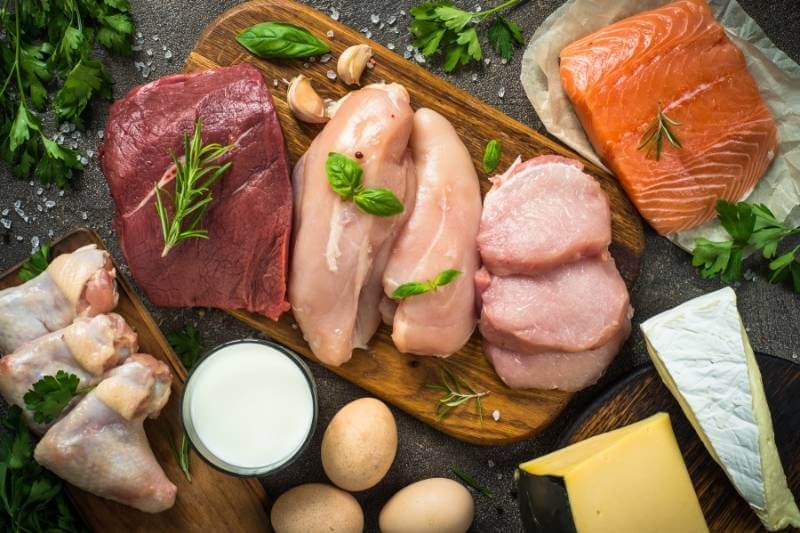Carbohydrate is the modern day ebola virus of nutrition.
Nobody wants to touch it with a ten foot pole these days.
Protein, on the other hand, is a nutrition rock star.
It has a great marketing machine behind it thanks to fad diet book authors trumping up and overstating its value for everything from maintaining normal health to building huge muscles to weight loss.
Television morning show hosts and robotic news anchors haphazardly promote protein with little concern for the scientific validity of their sources.
It’s little wonder that canisters powders continue to fly off the shelves and bodybuilders clean out every can of tuna and salmon from supermarket shelves.
How much protein DO you really need?
The following table adapted from the Australian Institute of Sport website and sourced from Burke and Deakin’s Clinical Sports Nutrition (5th Edition, McGraw-Hill Australia Pty Ltd) provides an estimate of protein requirements in grams per kilogram of bodyweight.
| Population | Grams/kg body weight |
| Sedentary adult men and women | 0.8 to 1.0 |
| Endurance athlete (recreational/moderate) | 0.8 to 1.2 |
| Endurance athletes (elite/high intensity) | 1.6 |
| Power athletes (high intensity) | 1.4 to 1.7 |
| Resistance athletes (early stages) | 1.5 to 1.7 |
| Resistance athletes (trained/steady state) | 1.0 to 1.2 |
| Female athletes | 15% lower than men |
If you’re from the United States and aren’t very good at math, then here’s a basic tutorial for you on imperial to metric conversions.
- Divide your body weight in pounds by 2.2 and this will give you your weight in kilograms.
- Then multiply your weight in kilograms by the factors above.
- So if you weigh 154 pounds then you are 70 kilograms.
- 70 kilograms multiplied by 1.5 is 105 grams of protein per day.
- If you’re still having trouble, use this online imperial to metric converter.
Numbers aside, you have to remember that consuming mega amounts above and beyond your physiological needs will not necessarily result in bigger muscles.
If you’re consuming excess protein at the expense of carbohydrate (“evil” carbohydrate!), then your body will break down the protein to its component amino acids and convert them to glucose to meet physiological needs – a process known as gluconeogenesis. The remainder can be stored as fat like any other nutrient.
Food protein vs. protein supplements
The most prudent advice is to meet your protein needs from whole food sources.
Meat, fish, poultry, and dairy products contain ample amounts of protein and are readily available at most supermarkets at a reasonable price.
But what is the argument FOR taking a powder?
I’m not convinced there’s any compelling evidence that supplements confer any advantage over real food.
If anything, food protein is superior to supplements.
However, a shake may be more a matter of convenience than necessity when you’re on the go all the time and don’t have time to cook.
Key message: eat real food but remember that powders are merely supplements and not substitutes for healthy eating.
Are you eating too much protein?
The recommendations above are good pragmatic values that are more than adequate and safe for most people. I would say that once you reach 2 grams per kg of body weight, then you’re bordering on overkill without much additional “return on investment.”
While eating large quantities of protein probably won’t do any damage in healthy individuals, those with pre-existing kidney dysfunction may worsen their condition.
Excessively high intakes may also crowd out other nutrient dense foods such as vegetables, fruits, and whole grains.
From a percentage of the total diet standpoint, try to keep protein to a window of 12 to 20% of your total daily calorie (or kilojoule) intake.
This leaves approximately 50 to 60% for high quality carbohydrate (i.e., NOT colas, ice cream, chips, and candy) and the remainder from fat.
